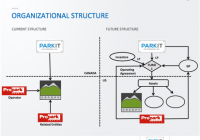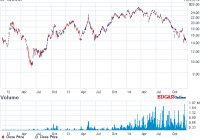Best ETF Strategies For 2015
Stocks are on their way to close this year on a strong note–with the S&P 500 index up 15% year to date-the third consecutive year of double-digit growth for the index. With the economy growing at the fastest clip in more than a decade, stocks are expected to continue their upward move, as companies will be able to boost their profits. Plunging energy prices and low interest rates will further benefit stocks. At the same time, after a bull run of almost six years, stocks are not cheap. And with the Fed expected to start raising rates sometime next year, many wonder how long the stock market party can go on. As we head into 2015, it may be a good time to look at the investment landscape and reposition your investment portfolio for the new year. Can the Bull Run Continue in 2015? U.S. stocks are still more attractive compared to most other asset classes and investors should continue to favor them in coming months as well. The Fed has gone out of its way in assuring investors that it will be “patient” in raising rates. Some may argue that rising rates will kill the stock market rally, but history tells us that the initial phase of rate increase is almost always accompanied by higher stock prices. And the reasons are clear-the increase in rates reflects an improving economy and lower risk of deflation-which are positive for stocks. Thus, stocks are the place to be in next year. Top Sectors for 2015 My favorite sectors for 2015 are Technology, Retail and Financial. Many U.S. corporates have accumulated huge piles of cash on their balance sheets and as the economy gathers steam, they should be more inclined to increase spending on R&D and Capex, benefiting tech firms. Low oil prices and slowly rising wages are good for U.S. consumers. Strong holiday sales suggest that consumer spending will grow as plunging oil prices increase disposable incomes. Financials have come a long way since the great recession with much healthier balance sheets and improved risk management systems in place. With improving economy, the sector has been able to grow earnings and increase dividend payouts. The Vanguard Technology ETF (NYSEARCA: VGT ), SPDR Retail ETF (NYSEARCA: XRT ) and SPDR Financials ETF (NYSEARCA: XLF ) are worth considering. Many energy stocks and ETFs look enticingly cheap now but I think it would be better to wait till we see some signs of oil prices bottoming out, unless you can stomach high volatility in anticipation of gains over much longer period. What to Expect from the Bond Market? Robust economic growth in the U.S. in the face of soft economic conditions in many other parts of the world, coupled with accommodative monetary policy worked great for bonds. In fact, the unexpected rally in the Treasury bond market this year surprised most. Treasury bonds-in particular longer term– may continue to benefit from heavy buying by foreign investors, as long as interest rates remain ultra-low in Europe and Japan, the U.S. dollar continues to strengthen and long term inflation expectations remain benign. Shorter term yields however may rise in anticipation of fed funds rate hike and thus the trend of yield curve flattening may continue next year. Municipal bonds were also big winners this year as investors poured $23.9 billion into municipal debt funds due to their tax benefits and relatively “safe” status. With flat supply expected in 2015 , municipal bonds may continue to outperform. Emerging Markets-Winners and Losers? With the plunge in oil prices, emerging markets landscape has undergone a significant change. Countries like China and India are among the biggest beneficiaries of cheap oil. China is the second largest importer of oil in the world and each $1 decline in oil price saves the country $2.1 billion annually. India relies on imports for 75% of its energy needs and oil accounts for about a third of its imports. Further, the government spends a lot on fuel subsidies. Declining oil prices will not only help the country narrow down its trade and budget deficit but also bring down inflation. With easing inflation, the central bank will be able to lower interest rates, boosting economic growth. Take a look at WisdomTree India Earnings ETF (NYSEARCA: EPI ). Indonesia and Thailand are also set to gain from the precipitous decline in oil prices. On the other hand, Russia and Venezuela in particular are likely to experience further pain next year. Prepare for Higher Volatility Markets saw some bouts of high volatility this year but in general the indexes maintained their positive momentum. Investors should however prepare themselves for more twists and turns in 2015 as the Fed moves closer to normalization of monetary policy. Geopolitical risks may further add to the uncertainty. Consider adding some low volatility ETFs-like SPDR S&P Low Volatility ETF (NYSEARCA: SPLV ) and iShares MSCI Minimum Volatility ETF (NYSEARCA: USMV ) to the portfolio. These not only shine during highly volatile market environments but also deliver superior risk adjusted returns over longer term.

